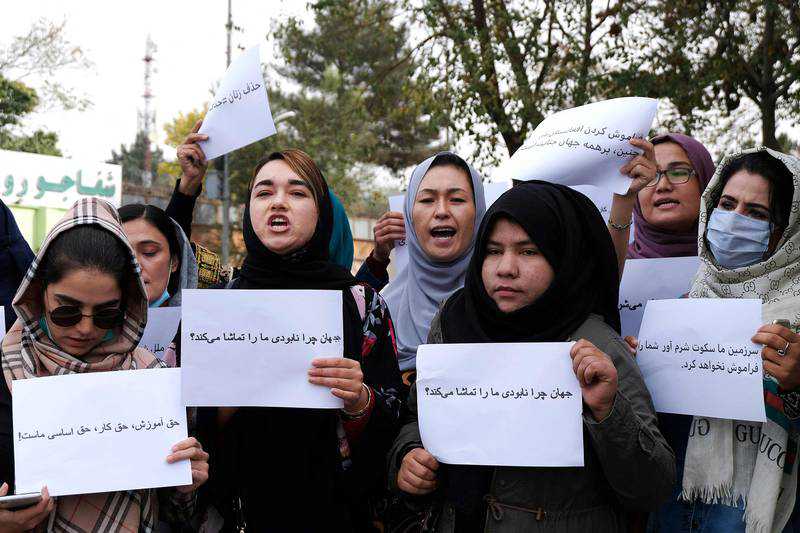G7 urges more action to help Afghan women
28 October, 2021

An international expert panel on gender equality has published its report highlighting the need for more aid to help Afghan women.
The report by the G7's Gender Equality Advisory Council examines the effects of gender inequality, with particular reference to the situation facing women and girls in Afghanistan.
The group published an open letter in August to G7 leaders calling on them to take urgent action after the Taliban takeover.
The report by the GEAC, an independent group of experts headed by UK Prime Minister Boris Johnson under the UK’s G7 presidency, expands on the 14 recommendations made to G7 Leaders in June on action to promote gender equality.
"A difficult road lies ahead," it said. "We finalise this report as women in Afghanistan are being segregated, unpaid, unrepresented and beaten.
"They remind us that progress is not inevitable and that solidarity between women within the G7 and outside is a moral necessity."
The report, which follows a series of discussions on how to create opportunities for women and girls, calls for additional aid for Afghanistan, as well as immediate action.
"The core principle of the GEAC is that, as a matter of course, foreign policy should address women’s rights, needs and voices," it said.
"The situation in Afghanistan is a powerful reminder of the need to champion the rights of women and girls to live, work and study freely and safely.
"We call on G7 leaders to reaffirm that the education of girls is at the core of their shared values and the foundation of progress.
"We ask them to take steps to ensure that the vital education of girls in Afghanistan is not disrupted and that schools and universities remain accessible and safe to girls and women.
"The voices of the women and girls of Afghanistan need to be heard – now."
GEAC chairwoman Sarah Sands and Nobel Peace Prize laureate Dr Denis Mukwege presented the council’s initial recommendations to G7 leaders at a summit in Cornwall in June.
“Our independent-mindedness was matched by a fierce sense of purpose and urgency," Ms Sands said. "We were meeting – virtually – not only in the middle of a pandemic but also with a colossal economic iceberg ahead of us.
"Our first imperative was to ensure that women, and particularly women of colour, were not overlooked in the recovery, as they so often were during the pandemic.”
The report called on the G7 to show leadership and demonstrate what can be achieved with effective intervention in justice, education, science, health, the workplace and economies.
It urged nations to ringfence funding for the education of women and girls.
Its research revealed that only a quarter of the 88 UN member states and territories that have National Action Plans on Women, Peace and Security, have a budget attached for this purpose.
"Targeted, ringfenced funding is essential to address the structural barriers and social norms that create gender inequality and violence against women and girls," it said.
"National Covid-19 response plans should be reviewed to ensure they are sensitive to the needs of women and girls, and include targeted policies and investment to support them."
The GEAC is proposing a gender equality monitoring and accountability mechanism.
"The 2021 GEAC has developed a set of recommendations that have relevance in any country's Covid-19 recovery policies; they are evidence-based, practical and measurable," said Bogolo Kenewendo, GEAC member, global economist and former minister of investment, trade and industry in Botswana.
"To that end, the report includes a proposal for a gender equality monitoring and accountability mechanism for the G7.
"It is important to maintain traction on the key issues of educating girls, empowering women and ending violence against women and girls, and build on progress through future G7 GEACs."
Liz Truss, Britain's Foreign Secretary and Minister for Women and Equalities, welcomed the report.
“We need to ensure that women across the world have access to education and employment and are free to live their lives without fear of violence," she said.
“The work of the GEAC will help focus minds on the task at hand, providing a base to advance gender equality globally and encapsulating our [Britain's] forward-thinking G7 presidency.
"I look forward to working with council members as we continue our mission to build back better, not only in this country but across the world.”
The GEAC champions the core principles of freedom, opportunity, individual humanity and dignity for women and girls around the world.
Source: www.thenationalnews.com
